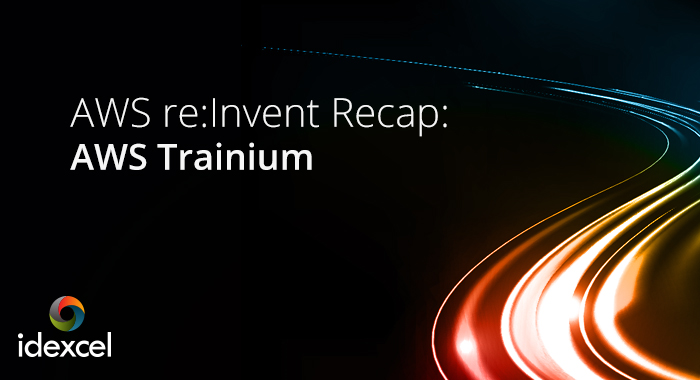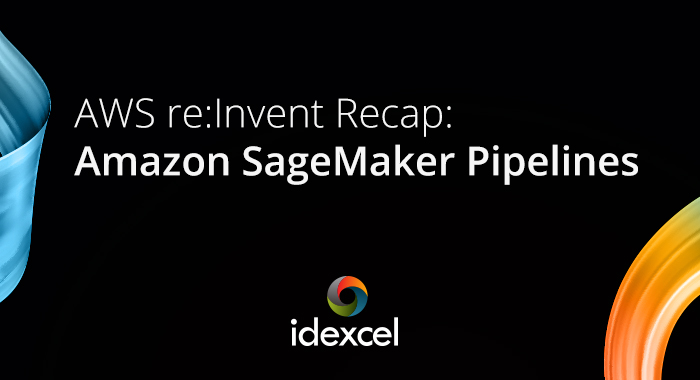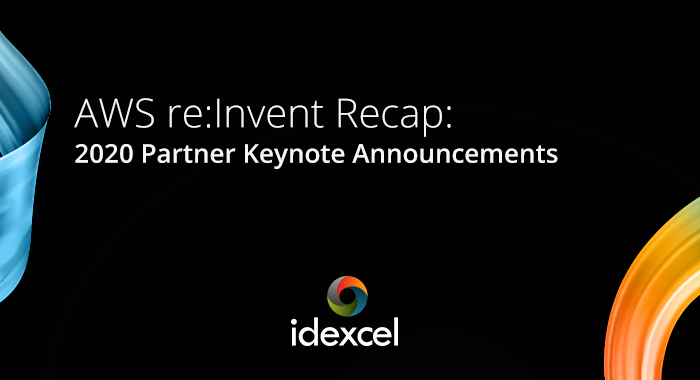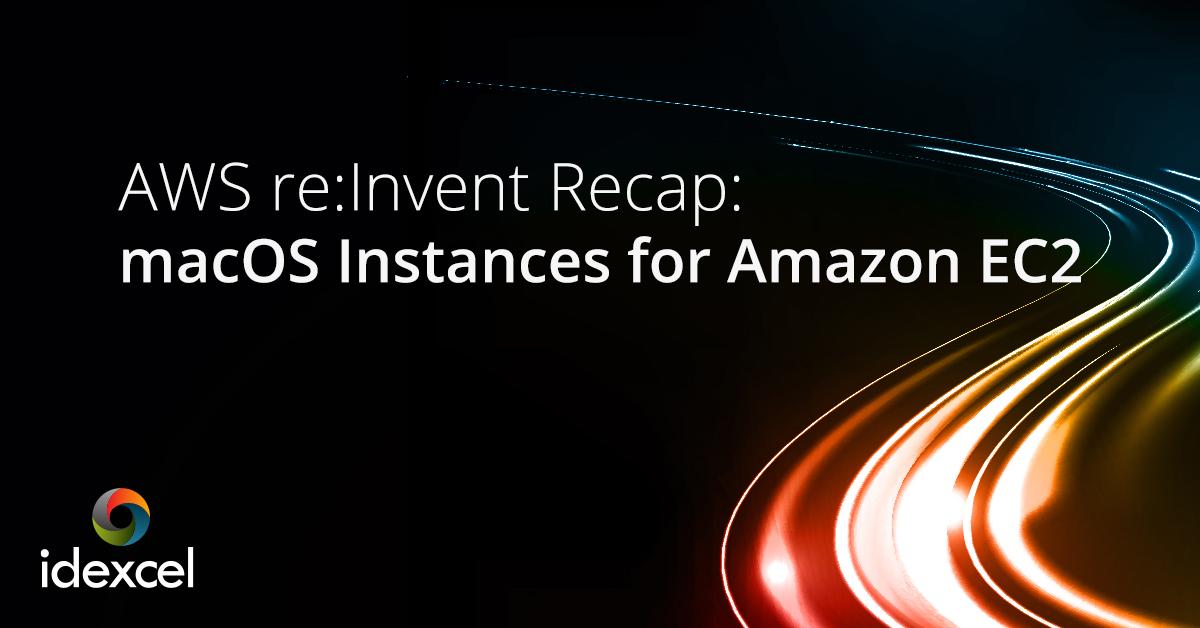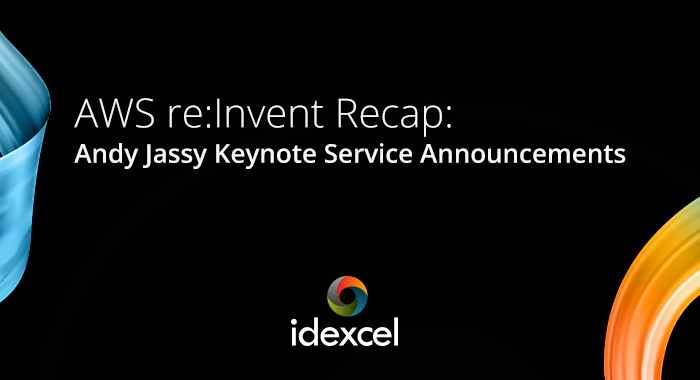
There were many major product launch and update announcements during Andy Jassy’s re:Invent Keynote presentation. We put together a list of these awesome technologies by service area to give you a quick overview on what they are and why they matter:
COMPUTE
Habana Gaudi based Amazon EC2 Instances will be available the first half of 2021 Powered by New Habana Gaudi pre-processors from Intel, users can expect a 40% better price/performance over the current GPU based EC2 instances. Built specifically for ML training, these instances work seamlessly with TensorFlow and Pytorch.
AWS Trainium is an ML training chip custom designed by AWS to deliver most cost-effective training in cloud. It supports PyTorch, MXNet, and TensorFlow using the same Neuron SDK Inferentia uses. With both Trainium and Inferentia, customers will have an end-to-end flow of ML compute from scaling training workloads to deploying accelerated inference. AWS Trainium be available as an EC2 instance and in Amazon Sagemaker in the 2nd half of 2021.
CONTAINERS
Amazon ECS Anywhere lets you run ECS in your own datacenter. Using the same AWS style APIs, cluster management, and workload scheduling and monitoring tools, ECS Anywhere works on any infrastructure (cloud, on-prem, etc.) to enable accelerated transitions.
Amazon EKS Anywhere will also be available and lets you run EKS in your own data environment. Leverage your EKS experience to setup, upgrade, and operate on-prem kubernetes clusters. Amazon EKS distro is open sourced.
STORAGE
Amazon Elastic Block Storage Offers 2 New Levels:
- GP3 can reduce expenses at 20% better cost per gigabyte. This lets customers independently increase IOPS and throughput without provisioning additional block storage capacity. Gp3 can provide predictable 3,000 IOPS baseline performance and 125 MiB/s regardless of volume size. Customers looking for higher performance can scale up to 16,000 IOPS and 1,000 MiB/s for an additional fee. This is great for applications that require high performance at lower costs such as MySQL, Cassandra, virtual desktops, and Hadoop analytics.
- io2 Block Express, the first san built for the cloud, takes advantage of advanced communication protocols driven by the AWS Nitro System to allow for up to 256K IOPS & 4000 MBps of throughput and a maximum volume size of 64 TiB, all with sub-millisecond, low-variance I/O latency.
SERVERLESS
Aurora Serverless 2, scale to hundreds of thousands of transactions in a fraction of a second and enable up to 90% cost savings compared to provisioning for peak capacity. Multi AZ support, Global Database, Read-Replicas, Backtrack and Parallel query features available. SQL is available now and PostgresSQL will be available early next year.
AWS Proton will help in building microservices by building a stack and provisioning AWS services using parameters to push code, deploy, and set up monitoring and alarms. For example, if the central engineering team makes a change in the stack, down-service microservices teams can be notified. This helps optimize the deployment of serverless applications. It’s free of charge, as you only pay for the underlying services and resources.
DATABASE
Babelfish for Aurora PostgreSQL presents a new translation capability to complement Schema Conversion tool and AWS Database Migration Service. With new translation capability to easily run SQL server applications on Aurora PostgresSQL with little or no code changes. Schema and data can be migrated using SCT and DMS. Then, application configuration can be updated to point to Aurora instead of SQL server. This will be available open source.
AWS Glue Elastic Views Set up a materialized view to copy that data to a target store and manages all dependencies from those steps. If something changes, elastic takes that and applies it. If data structure changes, this alerts the person to make necessary adjustments. AWS Glue Elastic Views is serverless and scales capacity up or down automatically based on demand, so there’s no infrastructure to manage.
Amazon QuickSight Q As the first Business Intelligence (BI) service with Pay-per-Session pricing. Ask any question and get answers in seconds. Trained over many data points and business areas, Amazon Quicksight Q uses NLP to understand domain specific business language to auto generate data models that understand meanings and relationships of data.
MACHINE LEARNING & ARTIFICIAL INTELLIGENCE
SageMaker DataWrangler Aggregate and prepare ML features to speed up data preparation. Point it at a data store, make use of over 300 built-in transformations, which are suggested automatically. Import and inspect data to identify the various types, recommend transformations, and apply it to the entire data set, all infra-managed under the covers. This data preparation is made available for inference in real time.
SageMaker Feature Store is used with ML as a purpose-built feature store. This tool makes it much simpler to name, organize, and find and share SageMaker data with teams. It also enables ease of accessibility for both training and inference. Because it is located in Sagemaker, development teams will experience really low latency for inference building machine learning models.
Amazon SageMaker Pipelines is the first Purpose-built CI/CD service for ML that automates different steps of the ML workflow such as data loading, data transformation, training and tuning, and deployment. Create, automate, and manage end-to-end ML workflows at scale with the peace of mind knowing various versions are stored in a central repository.
Amazon DevOps Guru automatically detects operational issues early and provides recommended actions to take that address the problem.
Amazon Monitron is an end-to-end system that leverages machine learning (ML) to detect abnormal behavior in industrial machinery that alerts teams of the need for predictive maintenance to help reduce unplanned downtime.
AMAZON CONNECT
Amazon Connect Wisdom uses ML to deliver real time product and customer info can integrate Salesforce and ServiceNow – as a call is happening, wisdom takes the call transcription to put the right info on the screen to the info needed around what to do when a given situation happens. This is a game-changer for customer support processes.
Amazon Connect Customer Profiles This presents a unified profile of a customer to the representative during a call. Databases will launch profiles (from Zendesk, Marketo, ServiceNow, etc.) and connects contact ID with a customer ID assigned consistently across all data stores. This helps normalize information from various platforms and displays it in a concerted and organized way. Agents have access to all information that might help change how they can have better, more holistic customer interactions.
Real-Time Contact Lens for upper level management is a sophisticated machine learning tool used to detect customer experience issues during live calls. Leverage ML expertise undercover to have better impact on calls and customer experience in real time. Criteria-based alerts are sent to ensure customers aren’t asked the same questions again, minimizing frustration to enable real-time resolution.
EDGE COMPUTING
AWS Outposts offers a hybrid solution for access to the familiar and reliable AWS infrastructure, AWS services, APIs, and tools to any datacenter, co-location space, or on-premises facility to build, manage, and scale your on-premises applications for a hybrid solution. AWS Outposts are meant for workloads requiring low latency access to on-premises systems, local data processing, data residency, and migration of system-interdependent applications.
AWS Wavelength Zones are an AWS Infrastructure offering that provides optimized service for mobile edge computing applications. They enable application traffic from 5G devices to reach application servers without leaving the telecommunications network, so developers can now build the next generation of ultra-low latency applications.
If you’re looking to explore these services further and need some guidance, let us know and we’ll connect you to an Idexcel expert!
